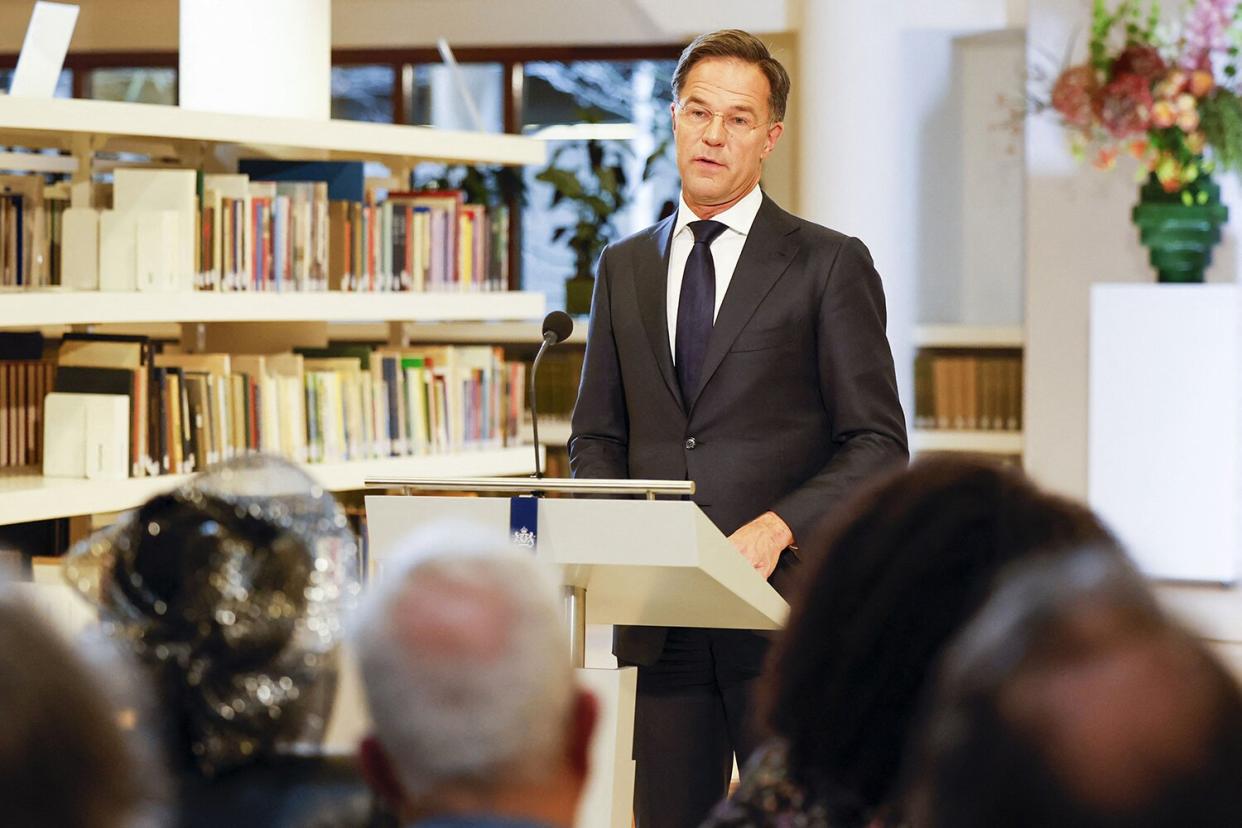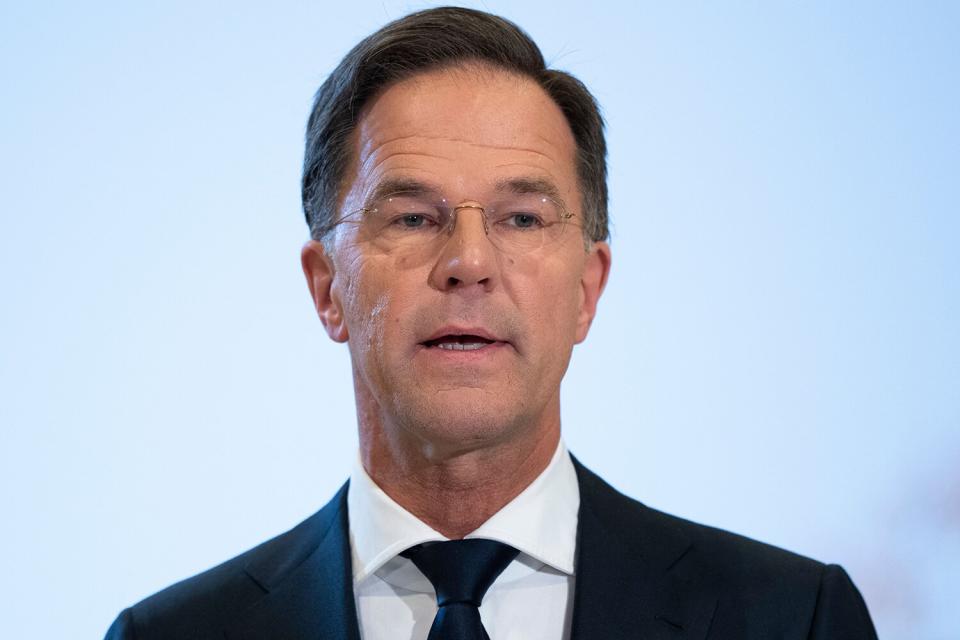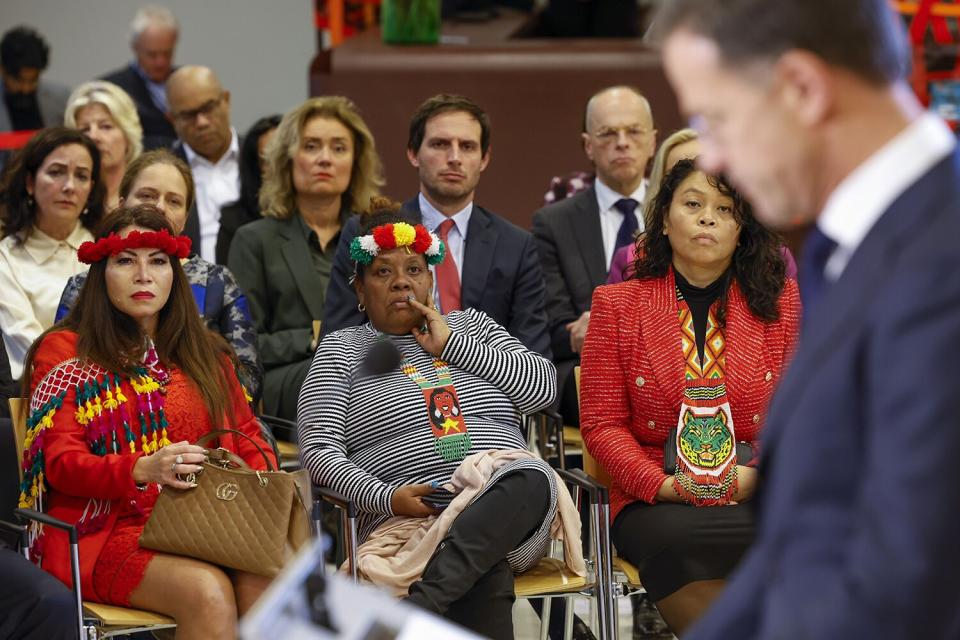Dutch Prime Minister Apologizes for Country's 'Shameful' Role in Historic Slave Trade

- Oops!Something went wrong.Please try again later.
Netherlands prime minister Mark Rutte has apologized for his country's "ugly, painful, and even downright shameful" historic ties to slavery.
Speaking in a 20-minute address at the National Archive in The Hague on Monday, Rutte apologized "for the actions of the Dutch state in the past: posthumously to all enslaved people worldwide who have suffered from those actions, to their daughters and sons, and to all their descendants into the here and now," reported NPR.
"For centuries the Dutch state and its representatives have enabled and stimulated slavery and have profited from it," he added, reported Reuters.
"It is true that nobody alive today bears any personal guilt for slavery...(however) the Dutch state bears responsibility for the immense suffering that has been done to those that were enslaved and their descendants."
Rutte's speech was met by silence, per NPR, with some attendees unmoved by the prime minister's words. Rutte also drew criticism for his failure to offer reparations on behalf of the Netherlands.
RELATED: Prince Charles Expresses 'Personal Sorrow' Over Suffering Caused by Slavery in Commonwealth Speech

ROBIN VAN LONKHUIJSEN/ANP/AFP via Getty
"It's about money," Dutch retiree Waldo Koendjbiharie, who was born in Suriname, told NPR. "Apologies are words and with those words you can't buy anything."
Other groups felt the apology was ill-timed, and that it should have come from King Willem-Alexander when he visits Suriname in July 2023 to mark the 160th anniversary of Dutch abolition in the former colony, Reuters reported.

Peter Dejong/AP/Shutterstock
Never miss a story — sign up for PEOPLE's free daily newsletter to stay up-to-date on the best of what PEOPLE has to offer, from juicy celebrity news to compelling human interest stories.
"It takes two to tango — apologies have to be received," Roy Kaikusi Groenberg, of the Honor and Recovery Foundation, a Dutch Afro-Surinamese organization, told the agency.
"The way the government is handling this, it's coming across as a neo-colonial belch," he added.

Hollandse Hoogte/Shutterstock
Rutte told the outlet that the run-up to the announcement had been handled "clumsily," and that Dutch envoys would be sent to other Caribbean islands that are part of the Dutch kingdom, including Curacao, St. Maarten, Aruba, Bonaire, Saba and St. Eustatius.
RELATED: Princess Eugenie Supports Anti-Slavery Art Exhibit in First Appearance Since Queen's Funeral
The move to apologize on behalf of the country has roots in the U.S.; Rutte said that the killing of George Floyd in 2020 helped spark discussion in the Netherlands and led to the formation of a national advisory panel to analyze the nation's colonial past.
In 2001 this panel found that the Netherlands' role in slavery amounted to a crime against humanity and recommended the government provide an official apology and reparations.
On Monday, Rutte said he agreed with these conclusions and added that while the country would not be paying restitution to the descendants of slaves, it would be establishing a $212 million fund for initiatives tied to tackling the legacy of slavery in the Netherlands and its former colonies.

